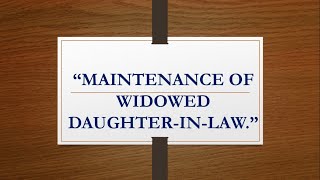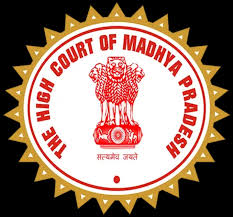1. In this matter the Deputy Commissioner, as the District Judge for the purpose of the Indian Divorce Act, of Khasi and Jaintia Hills has referred to this Court, under sec. 9 of the Indian Divorce Act, the following questions:--
(1) Can he try this case?
(2) Can the Calcutta High Court try this case? and
(3) Can any Court try this case?
In order to appreciate the position it is necessary to refer to the learned Judge''s findings of fact. He finds that the Respondent Jitendra Nath Samaddar and the Petitioner, who is his wife, having been married to him in 1934, are both British subjects. He also finds that the Respondent, who is now residing in Calcutta and the Petitioner who is now residing at a place called Mawkhar in Mylliem State in Khasi and Jaintia Hills last resided together in Mawkhar. The Mylliem State is a State in Assam in alliance with His Majesty. Therefore, Mawkhar is an area in an Indian State within the meaning of the Indian Divurce Act, sec 3.
2. The learned Judge in his reference states that his powers as a District Judge in British India for the purpose of the Indian Divorce Act were given to him by notification under the Scheduled Districts Act which does not extend beyond British India. The notification was issued in 1882 by the Chief Commissioner under the powers vested in him by sec. 6 (c) of the Scheduled Districts Act, 1874. By this notification the jurisdiction, powers and duties of a District Judge under Act IV of 1869, that is to say, the Indian Divorce Act, were directed to be exercised and performed within the Khasi and Jaintia Hills by the Deputy Commissioner thereof. This notification can have no operation beyond the Scheduled District in question and therefore we find ourselves in agreement with the learned Judge that this notification only gives him jurisdiction and power as a District Judge within the Scheduled District of Khasi and Jaintia Hills which is within British territory. In our opinion, he is not the District Judge in any area in Mylliem State, which is an Indian State, not being an officer appointed by notification in the Official Gazette under sec. 3 (2) (6) of the Indian Divorce Act. That being the position, we are of opinion that his Court cannot be regarded as a District Court within the meaning of sec. 3 (3) of the Indian Divorce Act and consequently the petition could not be entertained by the Court of the Deputy Commissioner of Khasi and Jaintia Hills.
3. Under sec. 45 of the Indian Divorce Act proceedings in matrimonial causes are to be regulated by the provisions of the Code of Civil Procedure. In the circumstances that have happened the learned Judge should proceed under the provisions of Or. 7, r. 10 of the CPC and adopt the same course as is adopted when a plaint, which should have been presented in another Court, is presented in a wrong Court, and return the petition, for presentation elsewhere, if the Petitioner is so advised. This being our view, the other two questions do not arise. It is not for the Courts to advise the parties. Further, any expression of opinion made by us on the question whether this High Court or any other Court has jurisdiction to entertain this petition, if it is presented to it, would only embarrass the learned Judge, who may later on be called upon to determine this issue. In these circumstances we do not think we need express any opinion on the last two questions. It is enough for us to say that the learned Judge has no jurisdiction to entertain the petition.
4. The result is that the papers will be sent back to the learned Judge to proceed according to law as indicated above. Before leaving this case we desire to express our indebtedness to learned Counsel, Mr. Sekhar Bose, who has, as amicus curise, argued the matter with great ability and given us all the assistance that we wanted on this point. We thank him for the assistance that he has rendered to the Court.

